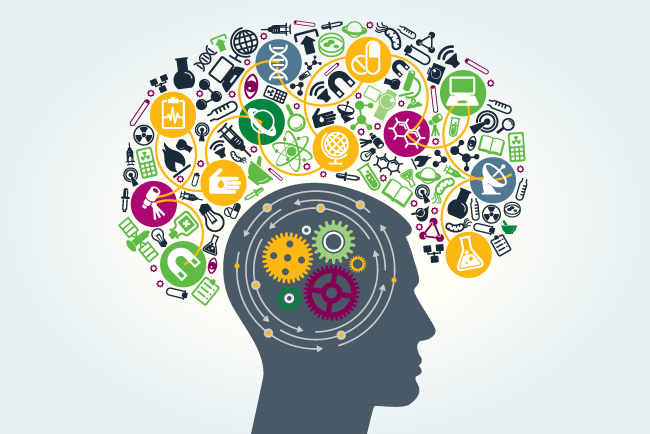This is it. 2 weeks left until the end of year exams. Right now, I’m mentally preparing myself to hunker down at my desk for days on end. I’m stocking up on ramen and organising a bible and a half worth of past tests. But too often do I find myself wondering… is all my preparation even going to help? Because they say that 80% of your results come from 20% of your work. I’m spending so much time worrying about what and when to study but I bet that many of us have never truly considered how we study. So here are some more study tips that, if done right, might just get you the grade you want without poring over your notes at 2am on the night before the test.
1. Classical Schmassical
You’ve probably seen and heard on the Interweb that listening to classical music can sharpen your mind because of the Mozart effect. If you’re the type of person who studies while listening to music in the background, especially music by the likes of Mozart, STOP. What you’ve been doing was based on a study done in 1993 which found that the test scores of college students improved if they listened to music by Mozart in the background. Or, at least, this was what was found according to the media. This study was published in the journal Nature and the media, as always, sensationalized the original results.
The college students were only tested on spatial intelligence, the kind of smarts you use when folding a paper plane or solving a maze, which happened to improve when listening to Mozart’s beats albeit for only a quarter of an hour. Unfortunately, an improvement in one type of intelligence doesn’t necessarily mean improvements in other types (an athlete might improve their fine motor intelligence with enough practice in their sport but may not necessarily get better at solving differential equations i.e. improving their mathematical intelligence).
Furthermore, 10 years later, researchers performed what has been referred to as the most comprehensive meta-analysis ever. Called the “Mozart-Shmozart Effect”, the meta-analysis found that between 40 studies conducted on the Mozart Effect, there was little evidence to suggest that listening to classical music improves performance on specific tasks and zero evidence that it improves your intelligence.
2. Talk to the Hand
They say that 80% of your communication is done non-verbally and if you’ve ever noticed, the best communicators never keep their hands to their sides. That lecturer who’s always walking across the front talking loudly and often waving their hands about is doing you a favour. Studies show that watching someone use their hands while they talk can help you better understand the information they’re presenting and even helps you to remember it for the future.
But watching someone gesticulate profusely not only benefits you, it benefits the person doing the gesticulating as well. This is where you talk to the hand. By using your hands while you’re explaining a tricky concept or repeating out loud that essay you’re trying to memorize, you’re decreasing the amount of energy spent to keep things in your short-term memory; you’re reducing the “cognitive load” of saying things to memorize them. The task of remembering information is shared across various parts of your body so your brain has to do less memory work. This helps you to learn faster and increase your ability to absorb and retain information.
3. Argue with Yourself
We all know that studying isn’t enough. It’s how you study that matters. And as you’ve probably figured out by now, there are tonnes of ways to better your study regime but some of those ways are scientifically unverified bs. However, there is one that was only recently discovered and proven to work by researchers at Columbia University. You learn best when you argue with yourself.
Now, I’m not talking about a straight up yelling contest between you and yourself. Arguing with yourself means asking questions about what you know, coming up with alternative explanations to things you might take for granted and constantly saying in your head, “why?”. It’s like having a mini-me on your shoulder and criticising your every thought. Your goal is to please that little monster with evidence and logic.
In Columbia’s March 2017 study, 2 hypothetical mayoral candidates were running for an election and students were required to do activities regarding that election. One group of students wrote a dialogue that a supporter for each candidate would have with one another while another group wrote an essay about the positive things about each candidate. Afterwards, both groups wrote a TV script about their favourite candidate. What researchers found was that students who wrote the dialogue showed greater understanding of the subject in their TV scripts, with references to city problems and the candidates’ proposed actions as well as criticisms of their proposed actions and linking different problems and actions together. The dialogue group showed less “absolutist” reasoning and had more flexible opinions which were based on the latest information.
The lead author of the study said that coming up with opposing views shapes how people perceive knowledge itself. Instead of associating knowledge with facts, arguing with themselves allows people to see knowledge as “information that can be scrutinized in a framework of alternatives and evidence.”
Note that while the above studies were carried out on students and the study tips are most applicable to students, learning can happen at any time and at any age. Really. Even on your deathbed, when a white, bearded male doesn’t come down from the heavens and greets you as one of his offspring, you’ll learn something new.
Thanks for reading.
Nicholas Kondal
